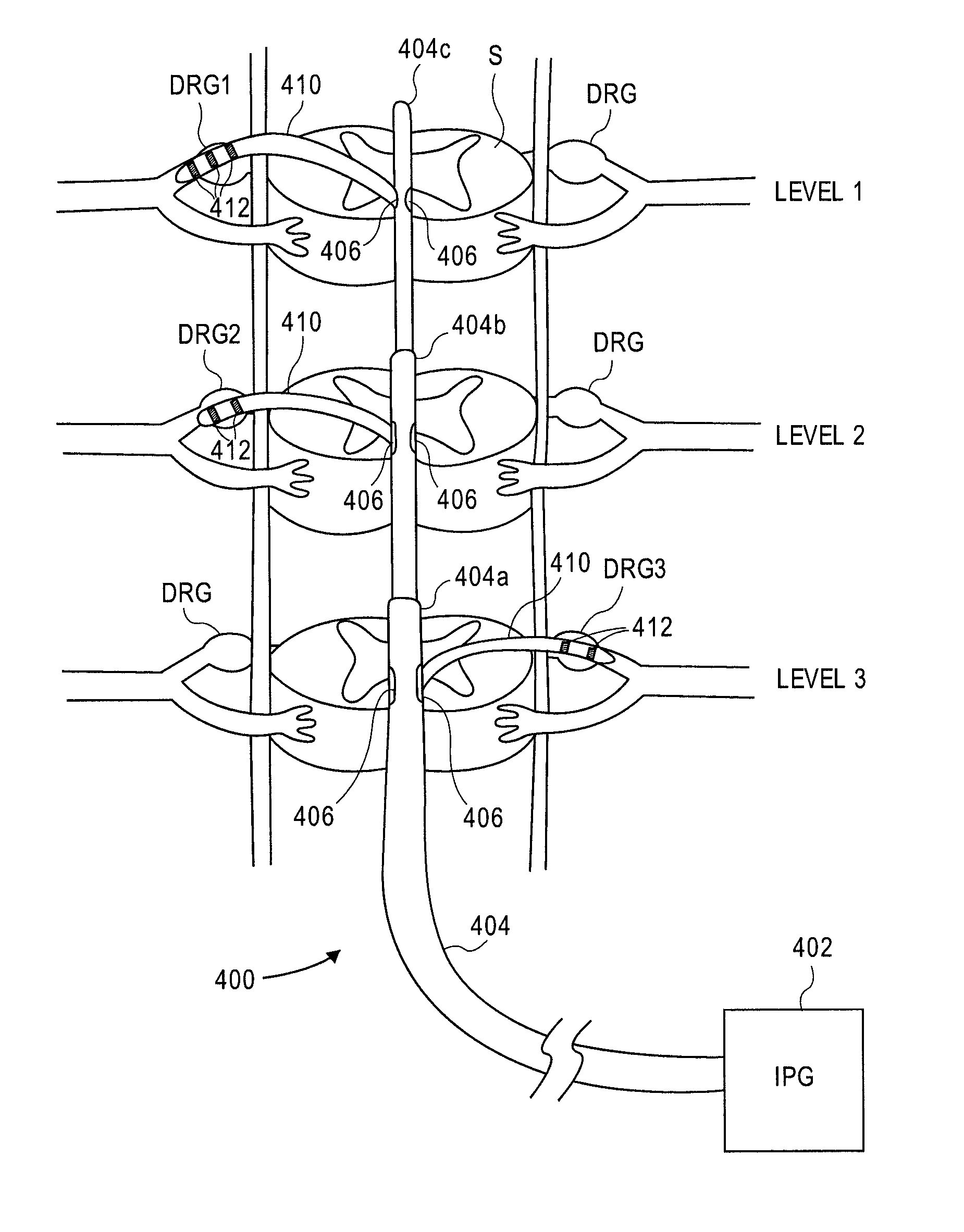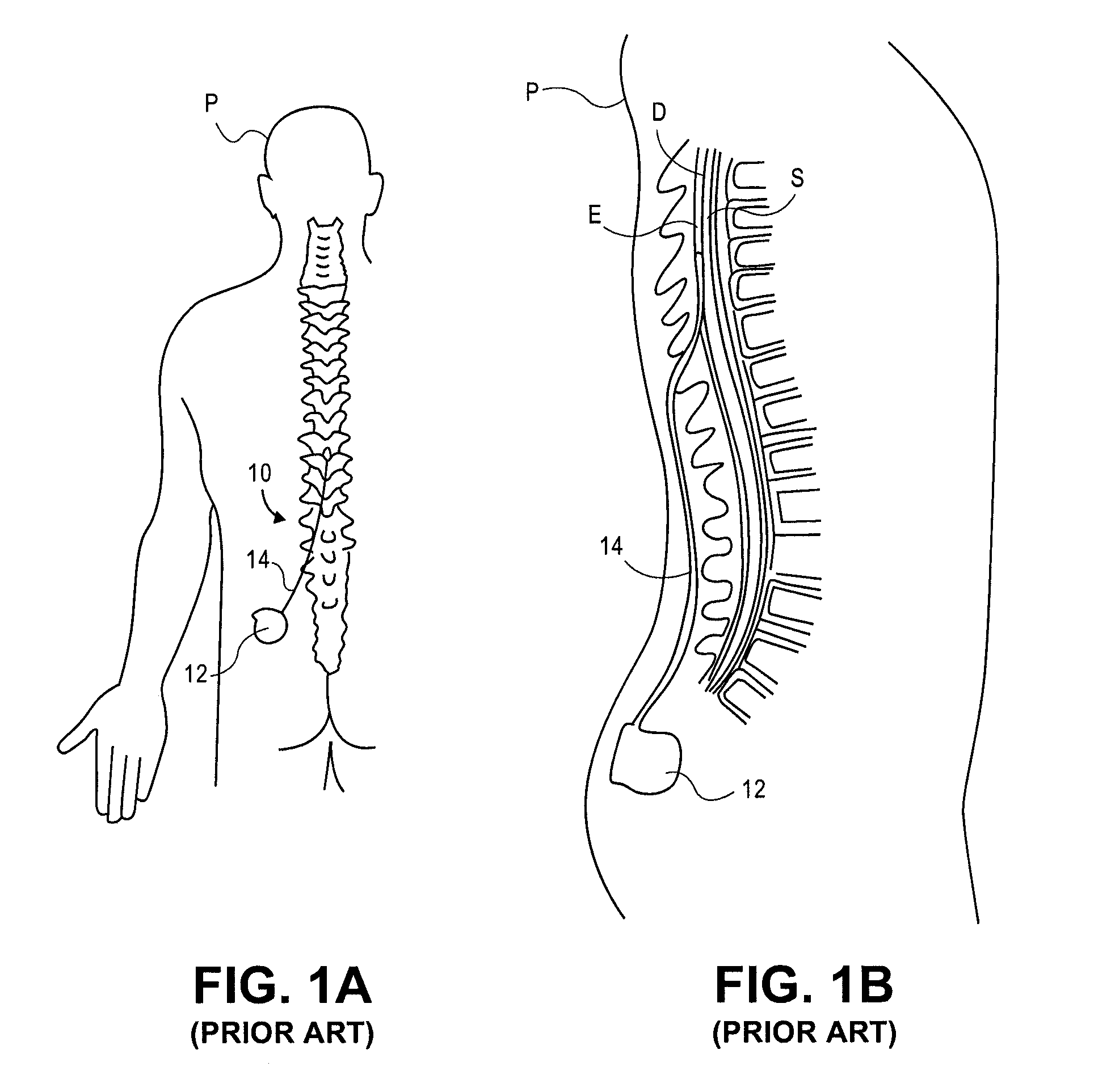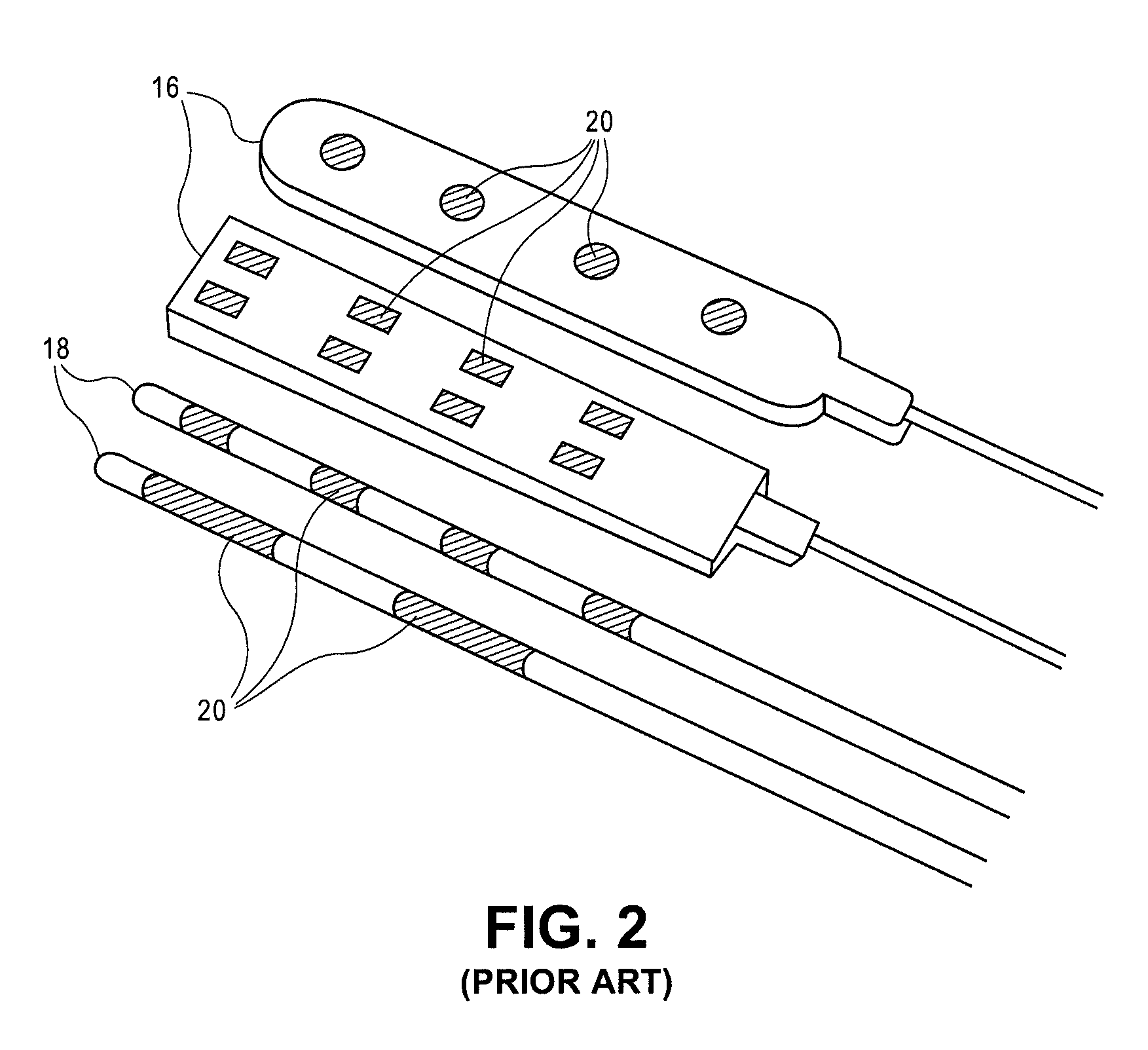Delivery devices, systems and methods for stimulating nerve tissue on multiple spinal levels
a delivery device and nerve tissue technology, applied in the field of delivery devices, systems and methods for stimulating nerve tissue on multiple spinal levels, can solve the problems of uncontrollable amount of stimulation energy needed to provide the desired amount of neurostimulation, unsatisfactory stimulation of motor nerves, and further altering local neural excitability states, so as to reduce deleterious side effects and effectively treat pain symptoms
- Summary
- Abstract
- Description
- Claims
- Application Information
AI Technical Summary
Benefits of technology
Problems solved by technology
Method used
Image
Examples
Embodiment Construction
[0049]In preferred embodiments, the devices, systems and methods stimulate the various spinal levels at specific nerve anatomies, such as the dorsal root DR or more specifically the dorsal root ganglion DRG. The following examples will illustrate specific stimulation of the dorsal root ganglia of various levels, however the embodiments are not so limited. Also, the following examples utilize various types of leads to provide stimulation. It may be appreciated that other elements, such as agent delivery devices, may be used alternatively or in addition to the leads for delivery of an agent to a specific nerve anatomy.
[0050]FIG. 6 illustrates positioning of a device 400 of the present invention so as to optionally simultaneously stimulate various levels (levels 1, 2, 3 in this example) of the spinal cord S. The device 400 is shown positioned within an epidural space of the spinal column, residing against the dura layer of the spinal cord. This is achieved by inserting the device throu...
PUM
 Login to View More
Login to View More Abstract
Description
Claims
Application Information
 Login to View More
Login to View More - R&D
- Intellectual Property
- Life Sciences
- Materials
- Tech Scout
- Unparalleled Data Quality
- Higher Quality Content
- 60% Fewer Hallucinations
Browse by: Latest US Patents, China's latest patents, Technical Efficacy Thesaurus, Application Domain, Technology Topic, Popular Technical Reports.
© 2025 PatSnap. All rights reserved.Legal|Privacy policy|Modern Slavery Act Transparency Statement|Sitemap|About US| Contact US: help@patsnap.com



